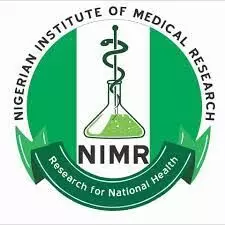NIMR has conducted over 3000 free Buruli Ulcer tests – Research director

Prof. Olaoluwa Akinwale, a Director of Research at the Nigerian Institute of Medical Research (NIMR), on Friday said that the institute had conducted over 3000 free Buruli Ulcer tests in the country.
Akinwale, who is also the leader, NIMR Neglected Tropical Diseases (NTDs) Group, told newsmen at the institute’s monthly media chat in Lagos.
Supreme news reports that Buruli ulcer is a neglected tropical disease characterised by development of painless open wounds causing large skin ulcers mainly in children aged five years to 15 years.
Buruli ulcer is a skin infection caused by a bacterium called Mycobacterium Ulcerans. The disease is concentrated in West Africa and coastal Australia.
In West Africa, the disease is predominantly reported from remote, rural communities, Côte d’Ivoire, Cameroon, Ghana, and Nigeria. In endemic areas, the disease occurs near stagnant bodies of water.
The director said that the Buruli Ulcer PCR Laboratory domiciled in NIMR had ensured both timely diagnosis and improved patients outcome for the disease.
According to the expert, research conducted shows that the disease has a low prevalence in the country compared to other African countries.
She said that the World Health Organisation (WHO) insisted that over 70 percent of cases in any country should be tested in a PCR laboratory to ensure accurate results before embarking on the eight weeks antibiotics treatment.
The director said: “This test is very expensive and since 2016, NIMR has been conducting free test on buruli ulcer patients because we have a PCR laboratory domiciled in the institute and it’s supported by the WHO and NIMR.
“We are part of the founding members of the Skin Entity Laboratory Network which is under the WHO. The network ensures that all members’ laboratories in the West African region operate a standard procedure.”
According to her, most cases of the disease are from the southern part of the country and this is due to heavy rainfall and other weather conditions.
Akinwale recommended that clinically diagnosed cases should be further screened for other NTDs with similar symptoms and production of locally-made reagents to reduce the cost of testing for the disease.
She also called for more funding to create more awareness on the disease and train more health personnel in areas with high incidence.



